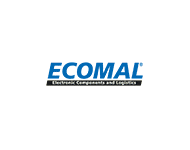Electronics Production |
Two Chinese nationals convicted of illegally exporting electronics components
Two Chinese nationals convicted of illegally exporting electronics components used in military radar and electronic warfare.
Following a five-week trial, a federal jury in Massachusetts found two Chinese nationals, one of whom resided in the United States, guilty of illegally conspiring to violate U.S. export laws and illegally exporting electronic equipment from the United States to China.
Several Chinese military entities were among those receiving the exported equipment. The jury also convicted a Waltham, Mass., corporation, owned by one of the defendants, which procured the equipment from U.S. suppliers and then exported the goods to China through Hong Kong. The exported equipment is used in electronic warfare, military radar, fire control, military guidance and control equipment and satellite communications, including global positioning systems.
Zhen Zhou Wu aka Alex Wu, Yufeng Wei aka Annie Wei and Chitron Electronics Inc. (Chitron-US), were convicted of unlawfully exporting defense articles and Commerce controlled goods to China on numerous occasions between 2004 and 2007 and conspiring to violate U.S. export laws over a period of ten years.
Wu and Wei were also both convicted of filing false shipping documents with the Commerce Department. In addition, Wei was convicted of immigration fraud for presenting a U.S. Permanent Resident Card, which she knew had been procured by making false and fraudulent statements to immigration officials, to enter the country.
Evidence presented at trial proved that the defendants illegally exported military electronic components, which are designated on the U.S. Munitions List, to mainland China, through Hong Kong, between April 2004 and June 2006. The defense articles the defendants illegally exported are primarily used in military phased array radar, electronic warfare, military guidance systems, and military satellite communications. Since 1990 the U.S. government has maintained an arms embargo against China that prohibits the export, re-export, or re-transfer of any defense article to China.
The defendants also illegally exported Commerce Department-controlled electronics components to China that could be used in military applications in electronic warfare, military radar, satellite communications systems and space applications. These items could make a direct and significant contribution to weapons systems and war-fighting capabilities of U.S. adversaries, and cannot be exported to China without an export license from the U.S. Department of Commerce.
Wu founded and controlled Chitron, including its headquarters in Shenzhen, China, and its U.S. office located in Waltham, Mass. While Wu resided in China, Wei served as the manager of the U.S. office. Using Chitron, Wu targeted Chinese military factories and military research institutes as customers of Chitron, including numerous institutes of the China Electronics Technology Group Corporation, which is responsible for the procurement, development and manufacture of electronics for the Chinese military. Indeed, Wu referred to Chinese military entities as Chitron's major customer since as early as 2002. Wu hired an engineer at Chitron's Shenzhen office to work with Chinese military customers. By 2007, 25% of Chitron's sales were to Chinese military entities.
Correspondence between Wu, Wei and other Chitron employees showed knowledge that U.S. export restricted parts were being shipped overseas to Chinese customers without having first obtained an export license. Wu instructed Wei and employees of Chitron-US on numerous occasions to never tell U.S. companies that parts were going overseas. At Wu and Wei's direction, U.S. companies were told to ship all ordered products to the Chitron-US office located in Waltham, Mass.
Upon receipt by Chitron-US of the ordered products, the U.S. commodities were inspected by Chitron-US employees and consolidated into packages, which were then exported to the company's Shenzhen office (located in Mainland China) using freight forwarders in Hong Kong, without the required export licenses from the Department of State and Department of Commerce.
Wu and Wei both face up to 20 years in prison to be followed by three years supervised release and a $1 million fine. After serving their sentence, both will face deportation to China.
Chitron-US faces up to a $1 million fine for each count in the Indictment charging the company with illegal export of U.S. Munitions List items and $500,000 for each count in the Indictment charging them with illegal export of Commerce Department-controlled electronics. Sentencing is scheduled for August 17, 2010.
Shenzhen Chitron Electronics Company Limited, the Chinese company owned by Wu which received the U.S. electronics and delivered the parts to Chinese end-users, was also indicted for the same crimes. The court has entered a contempt order against Chitron-Shenzhen for refusing to appear for trial and fined the corporation $1.9 million dollars.
Co-defendant Bo Li, aka Eric Lee, previously pleaded guilty to making false statements on shipping documents, and faces five years in prison to be followed by three years supervised release and a $1 million fine. Sentencing is scheduled for July 22, 2010, in Boston.
The case was investigated by the Department of Commerce's Office of Export Enforcement; Immigration and Customs Enforcement; FBI; and Defense Criminal Investigative Service. It is being prosecuted by Assistant U.S. Attorneys B. Stephanie Siegmann and John A. Capin of Office Anti-Terrorism and National Security Unit for the District of Massachusetts.






